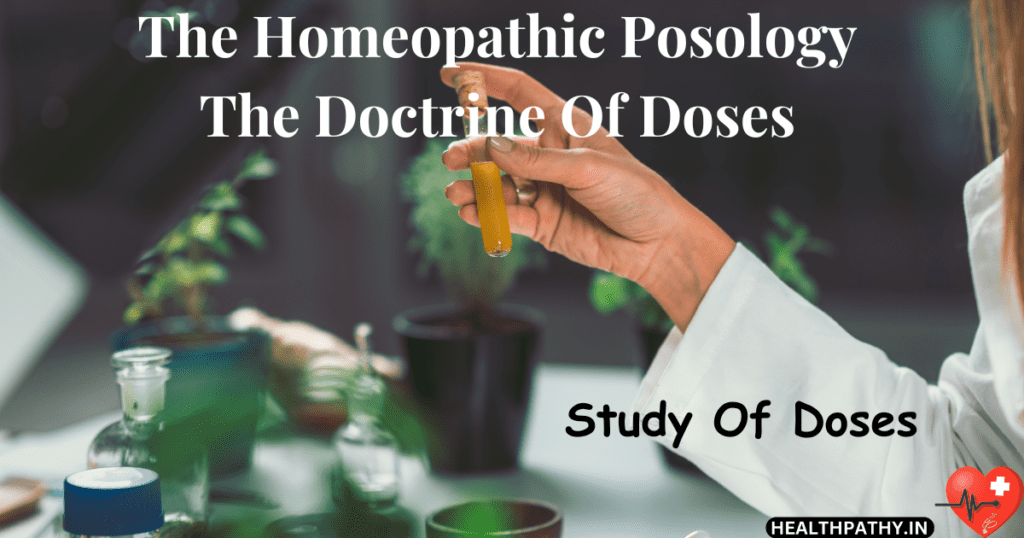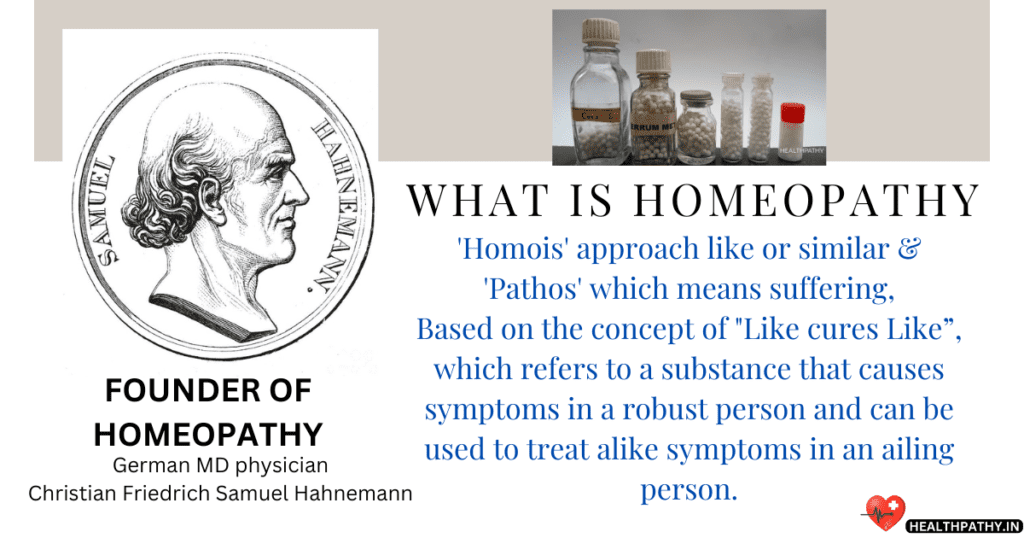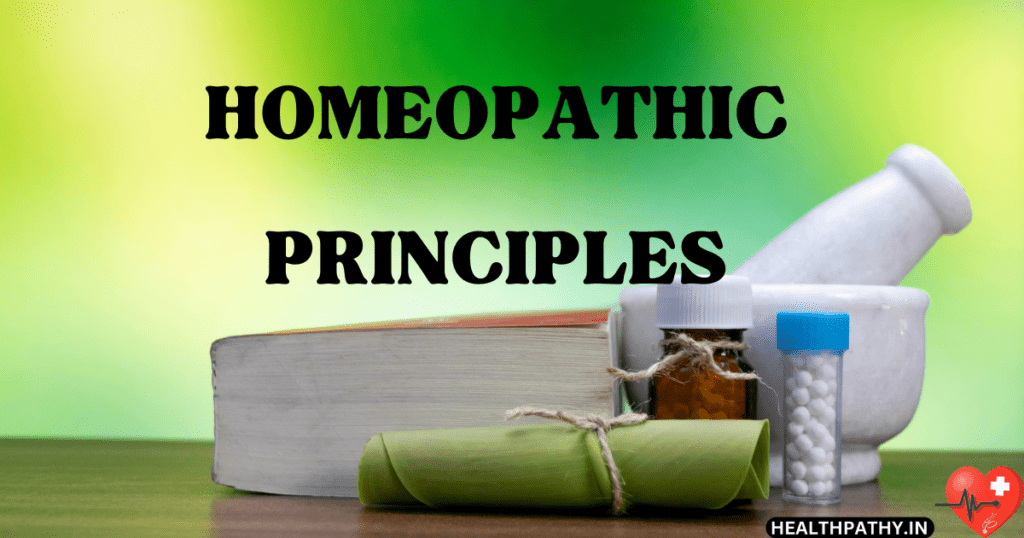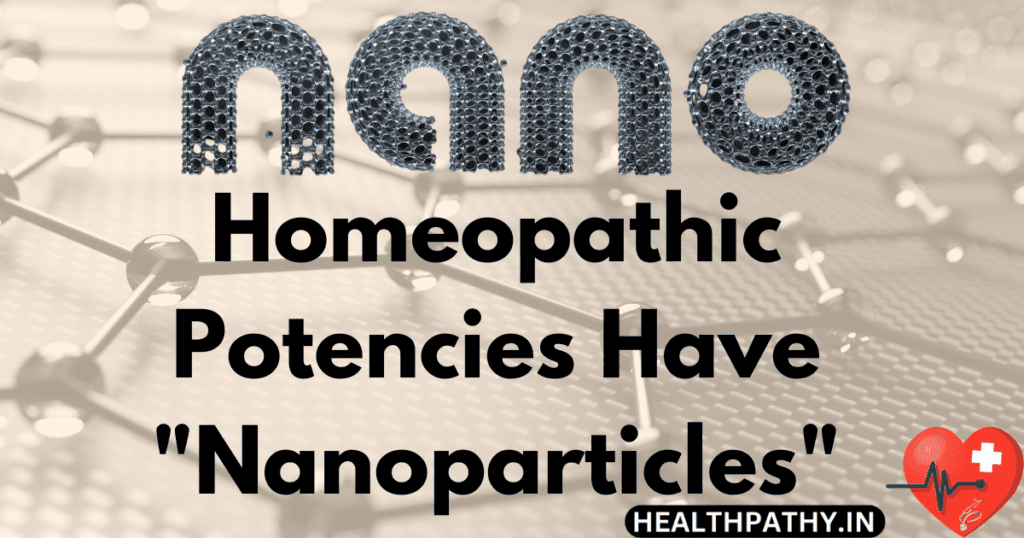Hello, I’m a homeopathic doctor with over two decades of clinical experience, having started my journey in 1997. My passion lies in simplifying complex medical concepts and making them easy for everyone to understand. Join me on this informative adventure where I’ll break down The Homeopathic Posology-The Doctrine Of Doses in a way that’s relatable and accessible to all. Let’s explore the world of holistic health together!


The philosophy of dosages in medicine is known as posology. The word “dose,” which refers to the amount of a drug or other therapeutic agent to be consumed or applied all at once or in fractional amounts over the course of a certain period, is derived from the word “dosis.”
Infinitesimal Dose In Homeopathy
A homeopathic “dose” is the specific medication preparation that is utilized, the quantity, the form, and the number of times the medication is administered. The term “dose” in homoeopathy refers to the quantity, form, potency, and frequency of the medicine’s administration. ‘Posology’ is the study of this dosage doctrine.
Choice Of Potency
The choice of efficiency in The Homeopathic Posology: The Doctrine Of Doses is an essential component of prescribing and involves thinking about various factors, along with the nature of the condition, the sensitivity of the individual, and the preferred depth of movement. Here are some tips for selecting efficiency in homeopathic prescribing:
Choice Of Potency In Acute vs Chronic Conditions:
In acute situations or situations that require more on-the-spot alleviation, lower potencies (which include 6X, 6C, 12X, or 12C) are often used. These potencies generally act on the bodily level and offer symptomatic relief.
In chronic situations or those requiring deeper and long-lasting effects, better potencies (such as 30C, 200C, or better) are regularly desired.
Choice Of Potency In Sensitivity Of The Individual:
Individuals vary in their sensitivity to homeopathic remedies. Some individuals may additionally respond better to lower potencies, while others may additionally require higher potencies to stimulate a response. Don’t forget the individual’s sensitivity and response to preceding potencies whilst choosing the perfect efficiency.
Choice Of Potency In Vitality And Energy Of The Sickness:
The power of the individual and the vitality of the sickness play a role in potency choice. In people with robust energy and sturdy health, higher potencies may be chosen to stimulate a deeper healing response. In people with compromised weak energy or persistent conditions, lower potencies can be preferred to keep away from overwhelming the system.
Choice Of Potency In Depth Of Action:
Potency selection also depends on the favored depth of movement. Lower potencies commonly act on a more superficial level, addressing localized signs, even as higher potencies have the potential to reach deeper levels and address the underlying reasons and constitutional elements of the individual.
Choice Of Potency In Individual reaction:
The response of the individual to preceding potencies can guide the choice of the next potencies. If a particular potency has elicited a favorable reaction, it may be endured or repeated. If the reaction has been constrained or unsatisfactory, an exchange in potency may be considered.


Higher Potencies Used In
A clear picture of disease: clear Mind symptoms
High Intelligence symptoms
Acute disease
Homeoprophylaxis
To clear suppression of disease or drug
Lower Potencies Used In
Pathology case: less sensitive patient
The lower potencies are usually used if there are gross pathological irreversible changes. When the disease is incurable, only for palliating the symptoms.
Low-intelligence patient
Drug-dependent patient
Low vital force of the patient
Physical symptoms
Usually given to females. When there are structural changes.
If the disease is very chronic and the vital force is so exhausted that the reaction of vital force to the stimulus is sluggish, When there is a shortage of symptoms, as in one-sided diseases, If we want to prescribe sarcodes, Usually for the elderly,
Contra-Indications Of Lower Potency
(A) Hypersensitive patients will come down with medicinal aggravation if the drug is given at a lower potency.
(B) Drugs that are highly active in their crude form, e.g. Phosphorus, should not be given in a lower potency.
(C) Cases with more mental and mind symptoms do not respond to the lower potency.
After Giving Remedy
After giving the remedy, certain changes follow.
1. Sudden amelioration of all symptoms means the remedy and potency are right, and the disease is not deep-seated.
2. A short, sharp aggravation followed by long amelioration means the remedy and potency are right, the reaction is good, and the patient is curable.
3. Long aggravations with slow improvement or slow decline of patients, or rapid improvement followed by long aggravations, mean the prognosis is not good. ( Here, give a placebo or some acute palliative remedy and restudy the case.)
4. Amelioration followed by the return of old symptoms shows that the remedy is deep-acting and will ultimately cure the disease. No interference is permitted.
5. If needed and there are no further improvements, give a single dose in higher one of the same remedy. Wait and watch.
6. The old symptoms return in reverse order, from inner organs to more superficial ones, moving from above downward.
7. There is only one rule with regard to repetition: wait and watch till the patient feels well, no further and the symptoms on which the remedy was prescribed begin to come back.
Must Read:
How To Take Homeopathic Medicine
Friday 11 April 2025 7:51:59:AM
- Acromegaly Cures With Scientifically Proven Homeopathy - 8 February 2024
- Acidity Cures With Scientifically Proven Homeopathy - 1 February 2024
- Appendicitis Cures With Scientifically Proven Homeopathy - 27 January 2024





